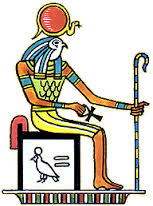 I HAVE NEWS FOR MY LOYAL BLOG FOLLOWERS! I will be taking a trip to Egypt sometime during December and/or January. You might wonder why I want to go to Egypt. My answer is that Egypt is the only place on my bucket list— I have vowed to stand before those pyramids before I exit this life. If I never do anything else, at least I can say that I went to Egypt!
I HAVE NEWS FOR MY LOYAL BLOG FOLLOWERS! I will be taking a trip to Egypt sometime during December and/or January. You might wonder why I want to go to Egypt. My answer is that Egypt is the only place on my bucket list— I have vowed to stand before those pyramids before I exit this life. If I never do anything else, at least I can say that I went to Egypt!
There are so many reasons why I have been drawn to Egypt’s amazing blend of ancient, mysterious civilization and contemporary Islamic society. I have loved Egypt for as long as I can remember. As a child, I wore costumes of Isis or Cleopatra for Halloween. The only reason that I go to Vegas is to visit the Luxor and buy Egyptian statues and other items.
MY STUDY of Islam and the Arabic language also draw me to Egypt. Travel to predominately Muslim Middle Eastern or African countries (Egypt is technically in Africa, but usually gets lumped into the “Middle East”) can be difficult and dangerous. However, if I delay my trip to Egypt until there is peace in the Middle East, I fear that I will be waiting for the rest of my life! Luckily, Egypt is a relatively safe Islamic country to visit. My knowledge of Islam, which gave birth to my Editing Islam series of posts on this blog, will serve me in good stead!
In order to make the most of my trip to Egypt, I am studying both Arabic and the ancient hieroglyphs. I have a lot to learn between now and my journey—and I’m sure that, as I study and prepare for my trip, some writing and editing topics will pop up and that can inform new blog posts.
THIS WEEK’S TOPIC IS THE USE OF FOREIGN WORDS
 The Chicago Manual of Style and the AP Stylebook differ on the typeface used for foreign words. Chicago uses italics (Rule 7.49), and the AP uses quotation marks (entry foreign words, p. 106).
The Chicago Manual of Style and the AP Stylebook differ on the typeface used for foreign words. Chicago uses italics (Rule 7.49), and the AP uses quotation marks (entry foreign words, p. 106).
The Chicago Manual of Style and the AP Stylebook also differ on the punctuation of the definition that should be given after a foreign word. The AP favors a short definition or explanation in the body of the text. Chicago requires an explanation or definition after the foreign word be given in either quotation marks or parentheses.
HOWEVER, both stylebooks agree that when a foreign word becomes familiar through repeated use, it can enter the lexicon of English in normal [Roman] typeface.
[I have not yet mentioned “Roman” typeface in my posts, but it is just the formal word for regular typeface. The other most common typefaces are bold, italics, underline and smallcaps (yes, all capital letters, just smaller). I usually use italics for all of my examples. Here, because we are discussing Roman typeface versus italics, I will give my examples in Roman and use italics only in examples where italics are actually used.]
FOREIGN WORD TYPEFACE
 The Chicago Manual of Style states that italics “are used for isolated words and phrases in a foreign language if they are likely to be unfamiliar to readers.”
The Chicago Manual of Style states that italics “are used for isolated words and phrases in a foreign language if they are likely to be unfamiliar to readers.”
Chicago lists some foreign words that have become familiar and, thus, can appear in regular Roman type: pasha, in vitro, de novo, a priori, the Kaiser, eros and agape, bourgeoisie, weltanschauung, and recherché. I would argue that the last two words would be a judgment call. I only know weltanschauung because I speak German; I had to look up recherché in Webster’s. Recherché is an adjective meaning rare, exotic, or obscure.
Chicago also lists some Latin words and abbreviations that should not be italicized: ibid., et al., ca., and passim.
Chicago notes that “if a foreign word becomes familiar through repeated use throughout a work, it need be italicized only on its first occurrence.” Rule 7.49. Thus, if I used a word from one of my Editing Islam posts, hajj, in an article or a book intended for those not familiar with Islamic words—and hopefully, that’s not you my readers, but pretend!—the book might use italics for hajj on first use, but then use ordinary type if the word is used throughout the book. However, “If [the word] appears only rarely, however, italics may be retained.”
IF YOU ARE NOT SURE about a word, look it up in Webster’s. If it is not there, you should definitely treat it as a foreign word. If it is, but you still think it may be unfamiliar to your readers, treat it as a foreign word.
The AP Stylebook also stresses that “some foreign words and abbreviations have been adopted universally into the English language: bon voyage; versus, vs.; et cetera, etc.” These words do not need special treatment
He waved bon voyage to Jennifer as she boarded her flight to Cairo.
Omar wanted to get his student visa extended, but he did not produce his passport, application, photo, etc.
She just ran on and on about this and that, et cetera, et cetera, et cetera.
Note: Legal stylebooks never use versus and vs. Instead, they use v., and the v. is not italicized. Thus we have Brown v. Board of Education. Legal texts almost never italicize case, statute, or regulation names. I say almost because legal citation is a complex world of its own. The national legal stylebook is the Harvard Bluebook. But many states, courts and jurisdictions have their own stylebooks or style sheets. California’s legal stylebook is the California Style Manual.
OK, NOW IT IS GOING TO GET REALLY TRICKY
FOREIGN WORD DEFINITIONS
 BOTH STYLEBOOKS require a definition or explanation of meaning following a foreign word.
BOTH STYLEBOOKS require a definition or explanation of meaning following a foreign word.
Chicago uses italics for the foreign word (as mentioned above) and then quotation marks OR parentheses for the definition.
AP uses quotation marks for the foreign word and a definition in the body of the text (right after the word).
You see how this can get very confusing!
Chicago references three more rules (6.93, 11.6, and 14.109) that determine whether quotation marks or parentheses are used for the foreign-word definitions. I list them here in case you care, but will not discuss them—I don’t know about you, but this is all the complexity that I can handle right now. The examples in Rule 7.50 itself are all over the place—so confusing that I will not restate them here. However, from the examples given in Rule 7.50, it seems that one-word definitions generally use quotation marks, while longer explanations use parentheses.
EXAMPLES OF FOREIGN WORD DEFINITIONS
The Arabic words marhaba (the secular word for hello) and a salaam u aleikum (an Islamic greeting, meaning peace be with you) are both common greetings in Egypt.
The Arabic words marhaba, “hello,” and a salaam u aleikum, “peace be with you,” are both common greetings in Egypt.
Akhmed told Layla that she couldn’t touch his Quran because she was just a bintun (the common Arabic word for girl) and might get it dirty.
 Akhmed told Layla that she couldn’t touch his Quran because she was just a bintun, “girl,” and thus might get it dirty.
Akhmed told Layla that she couldn’t touch his Quran because she was just a bintun, “girl,” and thus might get it dirty.
In Arabic 101 we learned the words bintun (a girl) and waladun (a boy).
In Arabic 101, we learned the words bintun, “a girl,” and waladun “a boy.”
AP Stylebook
The Arabic words “marhaba,” the secular word for hello, and “a salaam u aleikum,” an Islamic greeting meaning “peace be with you,” are both common greetings in Egypt. Note how I also put the definition of “peace be with you” in quotation marks. The AP example does this as well.
Akhmed told Layla not to touch his Quran because she was just a “bintun,” a girl, and thus might get it dirty.
In Arabic 101, we learned the words “bintun,” a girl, and “waladun,” a boy.
Offhand Punctuation Note: The sentence in the first paragraph—You might wonder why I want to go to Egypt.—is a good example of a sentence that contains a question but does not need a question mark. Generally, when you have a sentence that is talking about a question, you may not need a question mark. In some sentences, the issue of question mark versus period is up to your own discretion. The more the sentence sounds like a question, the more appropriate the question mark. For example, the sentence— You might wonder why Egypt. sounds more like a question and would read better as You might wonder, why Egypt? This way, the actual question is separated from the beginning of the sentence.
THE RIGHT TO CHOOSE
WHICH TREATMENT of foreign words and definitions do you like best? I like putting the foreign word in italics and the definitions in parentheses.
However, if your publication or author uses a particular stylebook, or an internal style sheet, you will have to cede to those authorities. The main thing is to learn or decide the rules that you will or must apply and then to apply them—consistently.
To end, I wish that peace is indeed with you tonight. Wa aleikum u salaam!
.





 I THOUGHT that it might be time, here at Tip of the Week, to get back to the basics and discuss the uses of the different punctuation marks. The period is, by far, the most-used punctuation mark (followed by the comma). So now I will give you the basic facts about that lowly, but hardworking, little dot.
I THOUGHT that it might be time, here at Tip of the Week, to get back to the basics and discuss the uses of the different punctuation marks. The period is, by far, the most-used punctuation mark (followed by the comma). So now I will give you the basic facts about that lowly, but hardworking, little dot.






